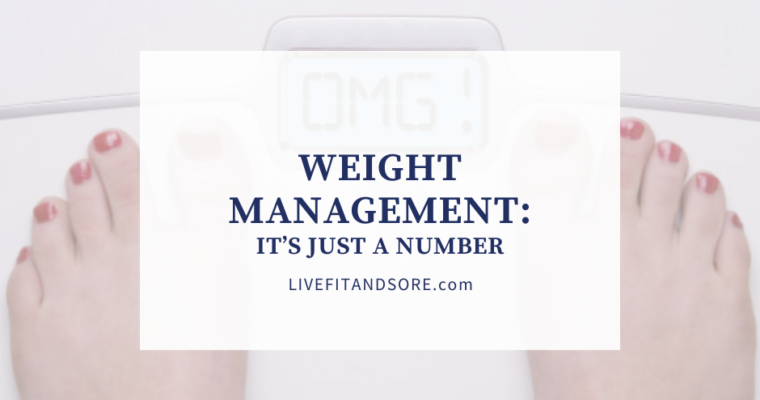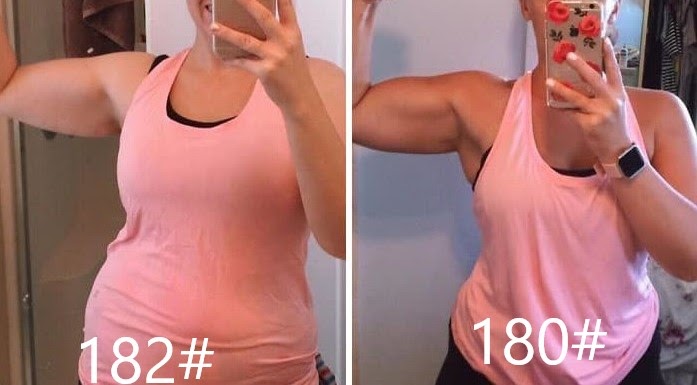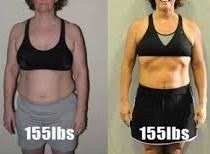How many of you out there rely on a number on the scale to tell you that you are OK? That you are healthy and look good?
Using the scale as an indicator of progress or overall health is not the most accurate way to figure out how you are doing health wise. I constantly have to tell my personal training clients to stop getting wrapped up in what their scale says. While that number can be helpful depending on your goals, it doesn’t tell the whole story. It only measures how heavy you are. What it doesn’t take into account is your body composition, which is the amount of relative fat to muscle you have in your body, measured by body fat percent. Your body composition is a much better and more accurate indicator of where you are health and fitness wise.
The images below are just two examples of people who have experienced very little weight fluctuation, yet their body composition changed drastically. Imagine how disappointed they would be if they only used the scale to gauge their progress.
My Advice
- Focus on getting healthy and fit.
- Every day do something that brings you closer to your personal definition of success.
- Seek help reaching your fitness goals if you are unsure of how to begin, need support or need accountability.
- Stop focusing on getting to a specific number on the scale.
- Don’t let the number on the scale determine how you view and treat yourself, or your worth.
The More Things Change, The More They Stay The Same
I realize truly embracing the idea that the scale number doesn’t define success or worth is an ongoing skill that needs to be worked on every single day. To prove that it’s not something that can be simply pushed aside, here’s a snippet from a post I wrote years ago about the same issue.
“Yesterday, I read a post about body image and the scale. It’s a reoccurring theme in my head and the head of so many others out there. A number on the scale can make or break how we feel about ourselves. It’s sad how much power we give it but yet we can’t help it. I have mentioned before, I have never owned a scale in my adult life. I view them as the enemy and would rather not have something around me that has the ability to make me feel bad about myself. When I go to the doctors, I request they do not tell me my weight. If I happen to see it on the chart, I usually freak out internally. How can I weigh that much?? I must look horrible. And add in any other negative self talk you can imagine.
I think it helps to read about athletes who are similar in their workout approach thinking the same things as ‘normal’ women do —
144lbs: Why Female Athletes Should Toss the Scale and Get a New Perspective
…one of the biggest things about this transformation, for me and the people around me – both clients and friends – is not so much that working out makes you confident or that training changes your body – it’s that people don’t even know what 135lbs looks like anyway. Since I first got heavily involved in martial arts and CrossFit, any time my weight has come up in conversation, which of course it does in competitive sports, no one has ever believed me. People consistently think I weigh about 10lbs less than I actually do.
Reading this stuff doesn’t make the internal dialogue go away but the more I read it, the more I hang out with people who appreciate strong women and the way we look, the more comfortable I am in my own skin and the more I realize that it really is just a number, not a definition of my worth.”


